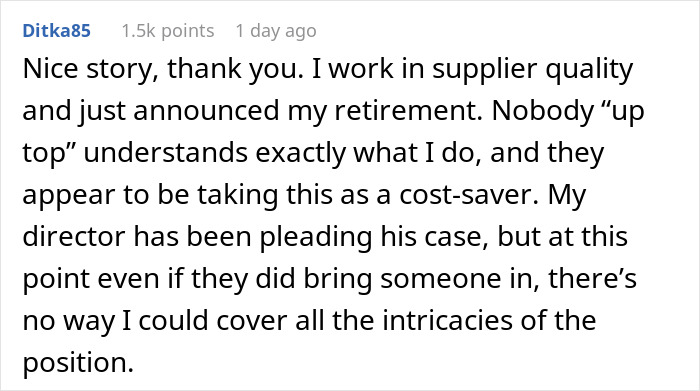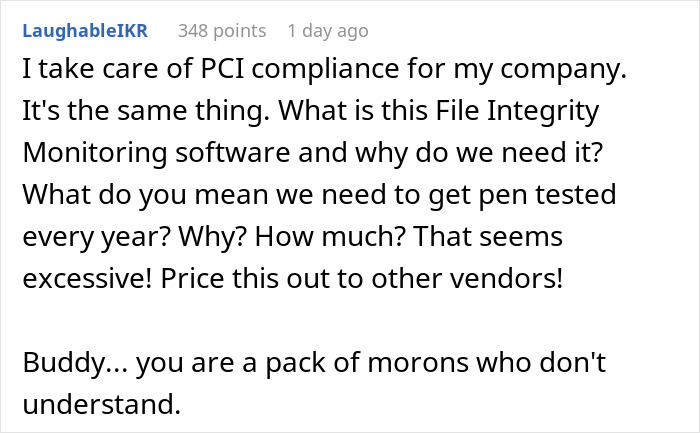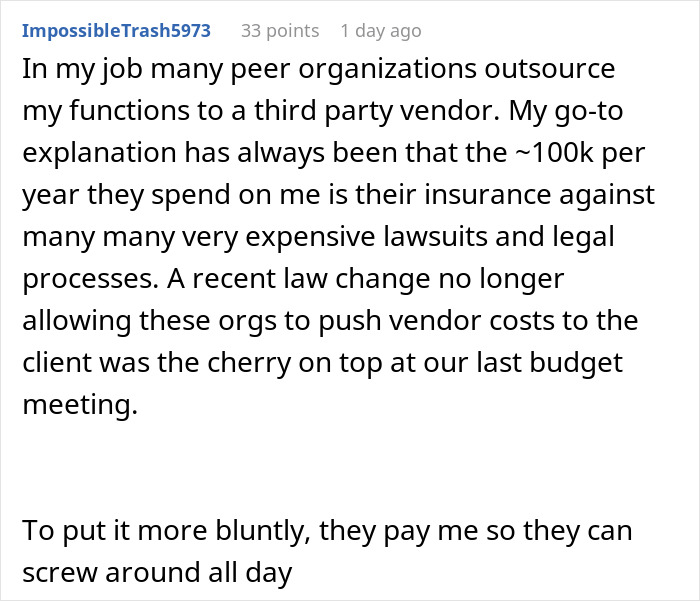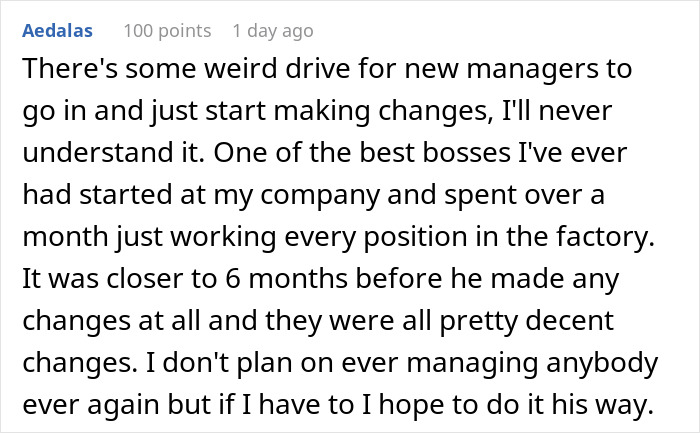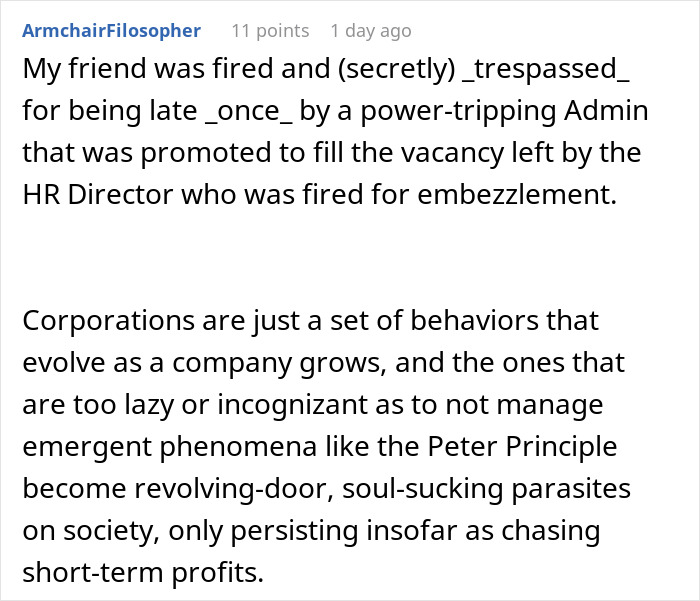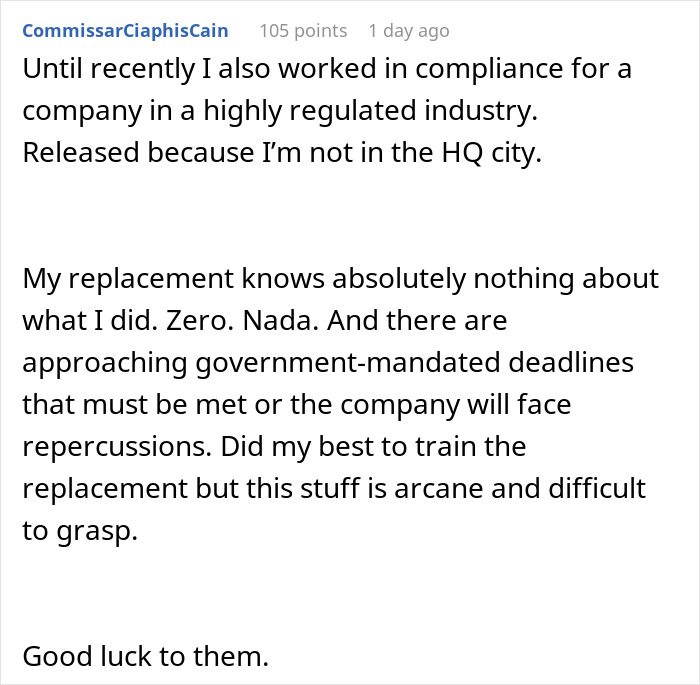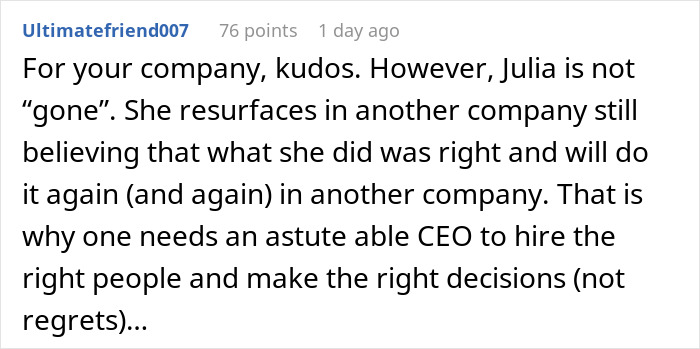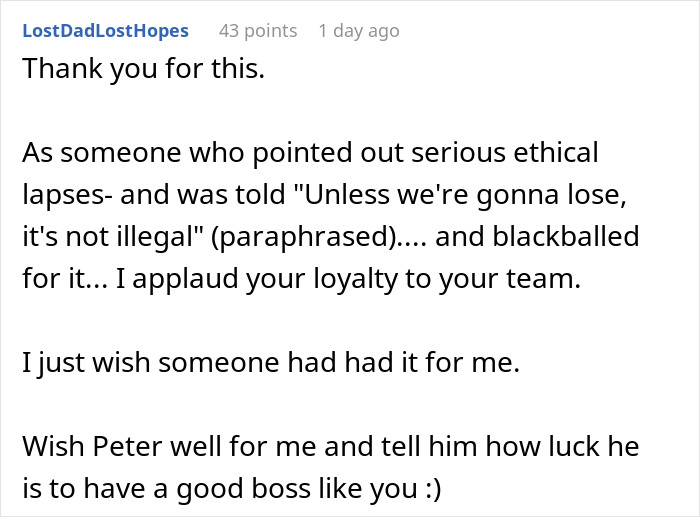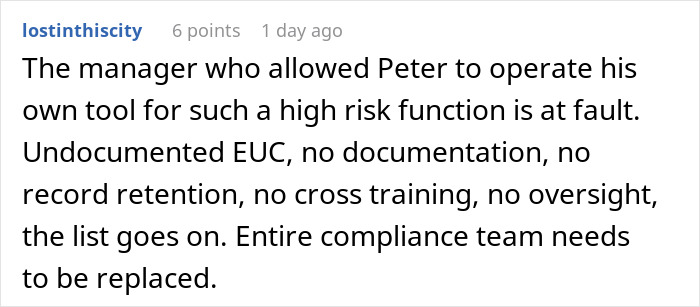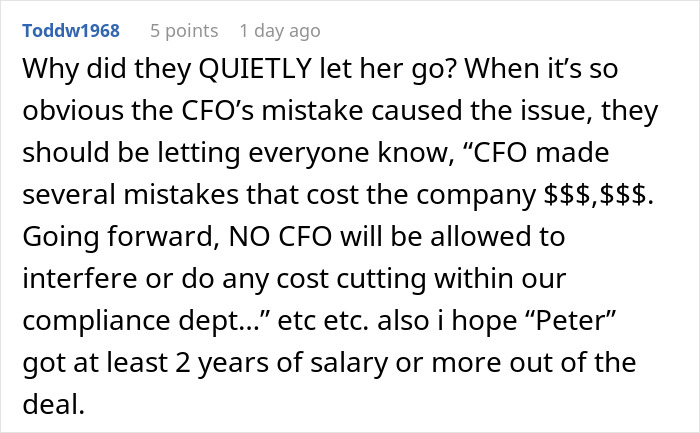We all know it’s necessary to follow your boss’ instructions, even if you might not fully agree with them. It’s usually better to trust their guidance and stay on their good side than to create conflicts!
But when one compliance officer was told they needed to layoff a whopping 30% of their staff, they knew it was a disaster waiting to happen. Below, you’ll find the full story that was recently posted on the Malicious Compliance subreddit, as well as some of the replies amused readers shared.
This company’s new CFO came in determined to cut costs

Image credits: Tima Miroshnichenko (not the actual photo)
But when she refused to listen to the senior compliance officer’s warnings, she ended up making an extremely costly mistake

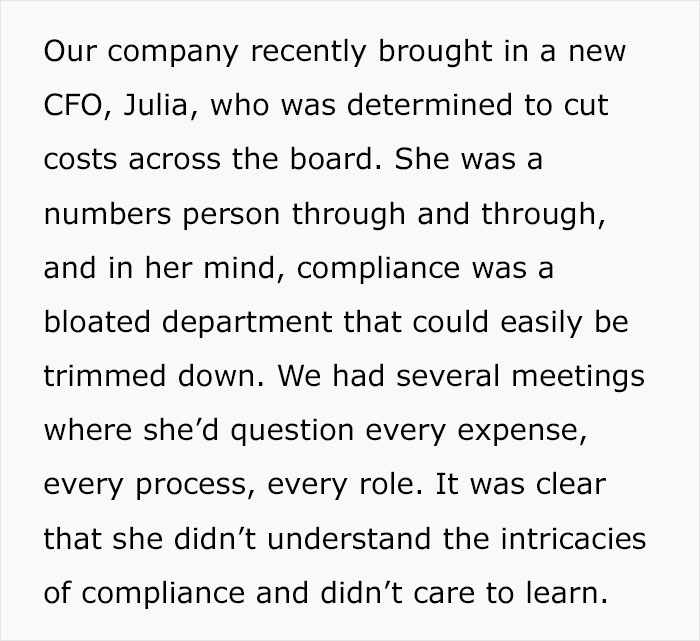
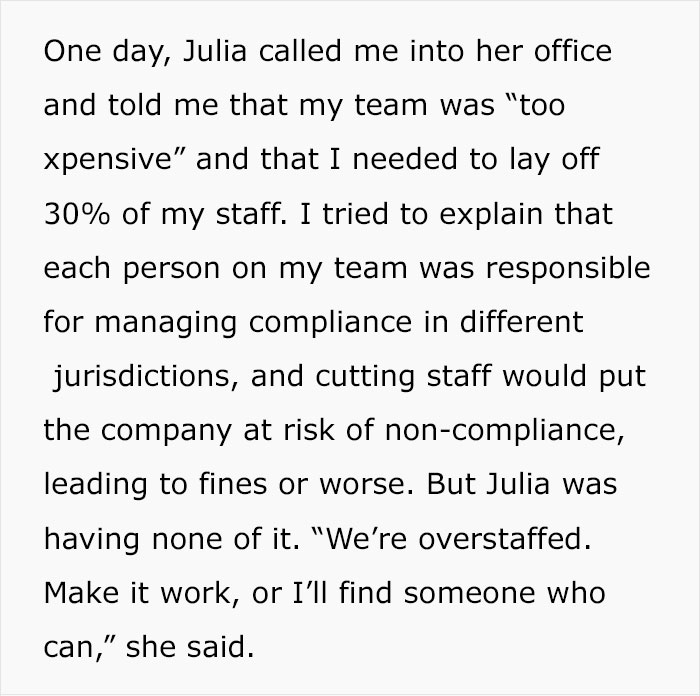





Image credits: Yan Krukau (not the actual photo)






Image source: creativenemo
The majority of workers believe they could do their managers’ jobs

Image credits: Mikhail Nilov (not the actual photo)
Unless you’re in a position of power in the workplace, you probably do a lot more following instructions than making decisions. And if you happen to know more than your supervisor about your specific field, well, that can be incredibly frustrating. The unfortunate reality is that a whopping 84% of American workers believe they can do their managers’ jobs, GoodHire reports.
At the same time, 83% of employees in the U.S. believe that they could do their own jobs without managers at all. But when you have a boss giving you tasks and guidance all day long, the easiest thing to do is simply agree and follow their instructions.
Even if you believe you have a better way of doing something or that your manager is about to make a mistake, it’s not always worth it to spend time trying to convince them to be open to new ideas.
When it comes to respectfully disagreeing with your boss, Forbes notes that the number one tip is to choose your battles. Consider if the conversation is even worth it before you jump in with ideas that contradict theirs.
It’s important to tread lightly when disagreeing with your boss

Image credits: Anna Shvets (not the actual photo)
It’s also wise to pick the right time. Don’t catch them off guard, and try to ensure they’re in a good mood before you start explaining why they’re about to make a costly mistake.
Ideally, if you really want to get your point across to your boss, you should have data or facts to back up your opinions with. For example, showing them a study or a graph that supports your claims might help them understand where you’re coming from. This can also prevent them from hitting back with questions like, “What makes you think that?”
Remember to be passionate about what you’re discussing with your boss, but don’t become too emotional. Don’t get upset if they shut you down, and don’t allow your feelings to cloud your message.
And if you want them to be open-minded towards you, you have to keep an open mind as well. Understand that you might not get exactly what you’re asking for, but be flexible and willing to compromise.
Layoffs often come back to bite companies

Image credits: Mizuno K (not the actual photo)
It’s unfortunate that no one was able to stop the CFO in this story before she laid off a significant amount of workers. While layoffs are quite common, as over 1.64 million American workers were laid off in 2023, they are not the magical solution that companies are often hoping for.
Yes, having to pay fewer salaries can cut costs. But layoffs can also come back to bite companies, as we’ve seen in this story. According to Harvard Business Review, layoffs can quickly erode trust between companies and their employees. Even those who get to keep their jobs will no longer feel safe and might feel betrayed by bosses who let their friends go without any warning.
Being laid off is also an incredibly stressful life experience to go through, which can take a huge toll on a person’s mental health. In fact, it’s estimated that workers take about two years to recover from the trauma of suddenly having their job ripped away from them. Plus, layoffs don’t always bring in more money, despite what companies may believe. Actually, studies have found that the majority of firms that have laid off employees don’t see higher profits at all.
We would love to hear your thoughts on this situation in the comments below, pandas. Do you think this company learned its lesson? Feel free to share, and then if you’re interested in checking out a similar story featuring malicious compliance in the workplace, look no further than right here!
Amused readers weighed in on the story, and some shared similar experiences of their own
